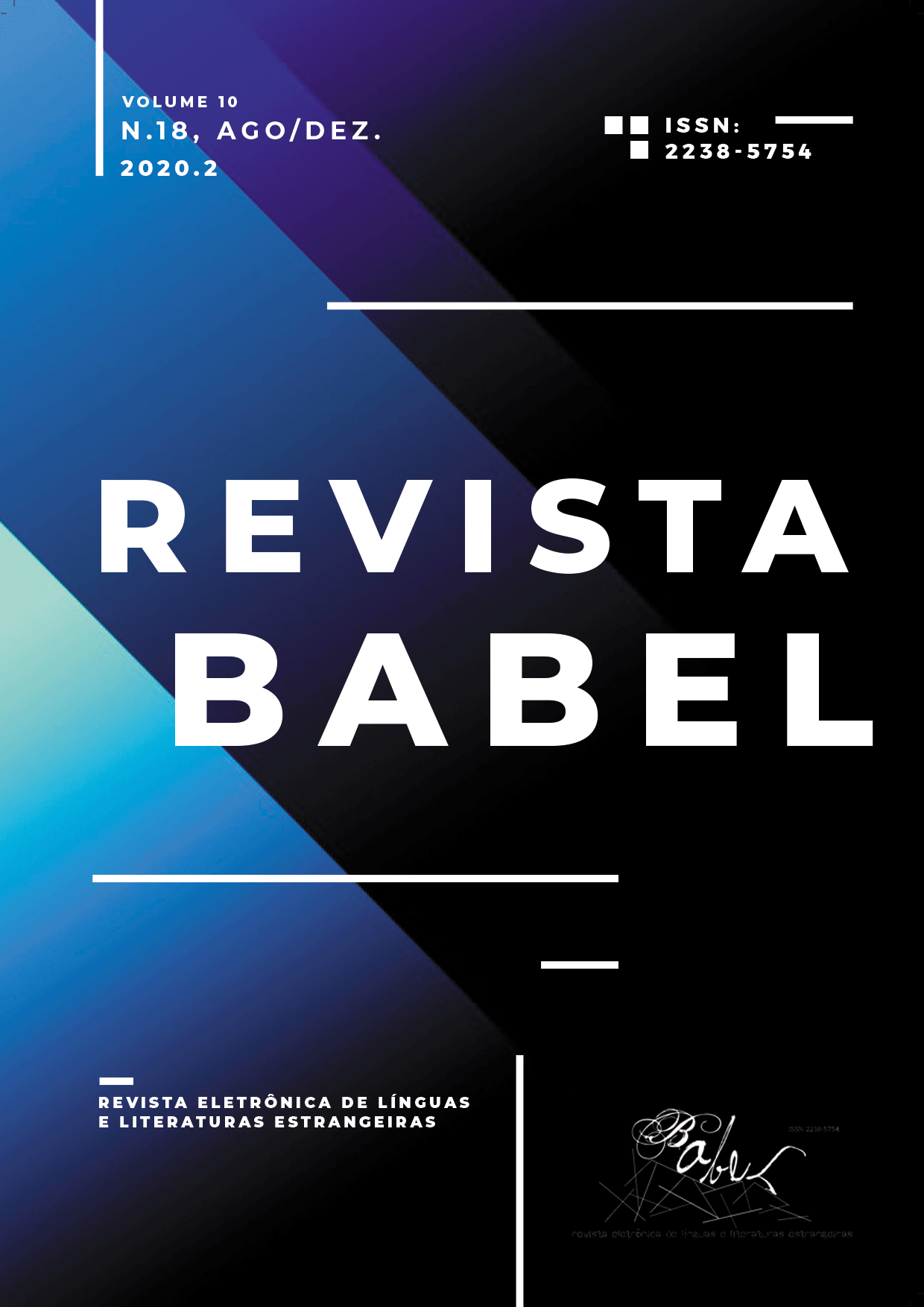Cultural stereotypes in language learning
DOI:
https://doi.org/10.69969/revistababel.v10i2.9241Keywords:
Culture, Stereotypes globalization, Identity, Modern, PostmodernAbstract
The main purpose of this article is to address cultural stereotypes in language learning, focusing on the English language. This approach is presented through a modern and postmodern view of the language; therefore, the concepts of globalization, cultural globalization, culture and identity are discussed so that it will be possible to understand how cultural stereotypes influence English language learning, with emphasis of teaching in Brazil. Examples are presented of how these concepts contribute to the creation of stereotypes, as well as procedures to address stereotypes in teaching English from a postmodern perspective.
Downloads
References
ADICHIE, C. The danger of a single story, 2009, Disponível em: <https://bit.ly/2U0ntF3>, Acesso em 20/01/2020
BORGHETTI, C. Unmasking stereotypes in Travel Guides: A Teaching Activity for Intercultural Foreign Language Education, In: HOUGHTON, S.A., FURUMURA, Y. LEBEDKO M., LI, S. (eds), Critical Cultural Awareness: Managing Stereotypes through Intercultural (Language) Education, Newcastle upon Tyne, UK, Cambridge Scholars Publishing, 2013, p. 119
CANAGARAJAH, S. Resisting linguistic imperialism in English teaching. Oxford: Oxford University Press, 1999
CZOPP, A. M.; KAY, A.C; CHERYAN, S. Positive Stereotypes Are Pervasive and Powerful, Perspectives on Psychological Science, Vol. 10(4), 2015, p. 451-463
FERNANDES, A. C., Teaching English to Undergraduate Students in a Brazilian University, GUILHERME, M. & SOUZA, L.M.T.M. (eds), Glocal Languages and Critical Intercultural Awareness, New York: Routledge, 2019, p. 207- 227
FIGUEIREDO, E. H. D. Globalization and the global spread of English: Concepts and Implications for teacher education, In: GIMENEZ, T., EL KADRI, M. S. and CALVO, L.C.S. (eds), English as Lingua Franca in Teacher Education, Berlin: De Gruyer Mouton, 2017
GIDDENS, A. The consequences of modernity. Stanford: Stanford University Press, 1990
KACHRU, B. B. (1992). Teaching World Englishes. In: B. B. Kachru (Ed.), The other tongue: English across cultures, Urbana, IL: University of Illinois Press, 1992, p. 355-365
KRAMSCH, C. Cultura no ensino de língua estrangeira, Bakhtiniana, 12(3), 2017, p. 134-152
KUMARAVADIVELU, B. Cultural Globalization and Language Education. New Haven, CT: Yale University Press, 2008
KUMARAVADIVELU, B. Language Teacher Education for a Global Society. New York, NY: Routledge, 2012
McFARLANE, D.A., A Positive Theory of Stereotyping and Stereotypes: Is Stereotyping Useful? Journal of Studies in Social Sciences, Vol. 8, Number 1, 2014, p. 140-163
OLIVEIRA, F.K.; BRISOLARA, V. Influências culturais e identitárias no ensino/aprendizagem de língua inglesa como uma língua adicional no Brasil, Nonada: Letras em Revista, Vol. 1, Num. 7, 2015, p. 111-121
PENNYCOOK, A. Critical applied linguistics: A critical introduction. Mahwah, NJ: Erlbaum, 2001
PHILLIPSON, R. 1992. Linguistic imperialism. Oxford: Oxford University Press, 1992
ROBERTSON, R.; WHITE, K. E. What is Globalization. In: Ritzer, G. (ed), The Blackwell Companion to Globalization, Hobboken, NJ, Blackwell Publishing Ltd, 2007, p. 54-56
SANTOS, B. S., Towards a Multicultural Conception of Human Rights. In: Hernadez-Truyol, B. (ed.) Moral Imperialism: A Critical Anthology, New York: New York University Press, 2002, p. 39-60
SANTOS, I. G. Os estereótipos culturais no ensino do FLE: Teoria e Prática. 151 f. Dissertação (Mestrado em Letras) - Faculdade de Filosofia, Letras e Ciências Humanas, Universidade de São Paulo, São Paulo, 2012.
SILVA, H.S.; SIMÕES, J. S. O papel da cultura no ensino/aprendizagem de língua estrangeira para crianças: dificuldades e estratégias, 2010, Disponível em: <https://bit.ly/36eu0hN>. Acesso em 13/01/2020
STEGER, M. B. Globalization: a very short introduction, Oxford: Oxford University Press, 2003, p.10
THOMPSON, W.E.; HICKEY, J.V. Society in Focus: Introduction to Sociology, Boston: Pearson, 2005, p.131-136
Downloads
Published
How to Cite
Issue
Section
License
Os autores detém os direitos autorais sem restrições, porém ao submeter os originais, concordam em transferir a este periódico os direitos da primeira publicação. Isto deve ser informado em caso de nova edição do texto. As produções que derivarem deste material, devem obrigatoriamente citar a fonte. Os textos publicados nesta revista, salvo indicações contrárias, encontram-se sob uma licença Creative Commons Atribuição 4.0 Internacional.

